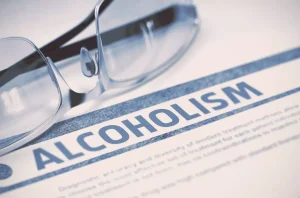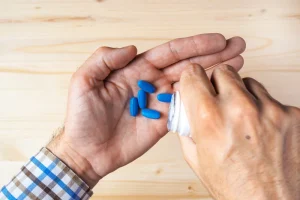
By Courtney Cosby “I drank too much last night, and the night before that. While I am consuming it, it is consuming me.” These are words that sadly come out of the mouths of too many people. Alcoholism is painful both for the individual who can’t stay away from the drink and for the people who love them, as they watch them move through life in a haze. This debilitating disorder leaves individuals and families frustrated while they try to figure out how to solve the problem of alcoholism in their lives. What makes it so indispensable to the person who seems to be so ruled by drink?
Behaviors linked to addiction
As well as ‘psychological addiction’, alcohol can also produce physical dependency. People who are physically dependent on alcohol will need the support of a healthcare professional to stop drinking and may need to detox in hospital under medical or nursing supervision. Alcohol typically inhibits the Corticotropin-releasing why is alcohol addictive factor (CRF) in the brain. CRF is a neurochemical that plays a significant role in how the brain deals with stress and when you drink, it inhibits CRF and makes you feel more relaxed and less stressed. And once your body is physically addicted to alcohol you will experience withdrawal symptoms when you stop drinking.
Recognizing Alcohol Use Disorder And Addiction
Therapy can help people who suffered as a child to address those challenges and develop healthier coping skills. Alcohol addiction is a horrific experience for anyone – either the person suffering, or the person who loves someone suffering. Understanding the science behind why alcohol is addictive can provide insights into how it impacts the brain and body. This knowledge can help to create effective treatment plans for people struggling with alcohol use disorder (AUD). Alcoholism use disorder affects more than 29.5 million individuals starting as early as 12 years old, according to the 2022 National Survey on Drug Use and Health (NSDUH).
- Unfortunately, this cycle can be experienced for quite a while, with many individuals struggling for decades before they truly realize they have an alcohol use disorder and decide to seek help.
- BetterHelp can connect you to an addiction and mental health counselor.
- GABA-A interferes with the main excitatory neurotransmitter, known as glutamate, which is responsible for carrying signals between nerve cells in the body.
- Many people treat alcohol as a reward at the end of the day or after an achievement.
Charitable Care & Financial Assistance

There are many organized programs that provide the support of peers, usually through frequent meetings. Alcoholics Anonymous is one example; it offers a structured 12-step path toward recovery with a community of support from those who have dealt with similar challenges. Heavy drinking can fuel changes in the brain—about half of people who meet the criteria for alcoholism show problems with thinking or memory, research suggests. The ability to plan ahead, learn and hold information (like a phone number or shopping list), withhold responses as needed, and work with spatial information (such as using a map) can be affected. Brain structures can shift as well, particularly in the frontal lobes, which are key for planning, making decisions, and regulating emotions.
In 2021 alone, it’s estimated that up to 29.5 million people met the requirements for alcohol addiction. The social acceptance of drinking can often lead to denial — and, if left untreated, severe consequences. The idea that someone is suffering from ‘alcoholism’ (and is ‘once an alcoholic, always an alcoholic’) has been enshrined since the 1930s in the work of Alcoholics Anonymous. Although there is very little scientific basis for it, it is an idea that has helped millions of people to turn their lives around. There are countless people around the world today who are living happier and more fulfilled lives because they decided that they were ‘an alcoholic’ and decided to do something about it by never drinking again.


The reward pathway makes mental connections between activity and pleasure. Not everyone who binges drinks has an AUD but is at a https://ecosoberhouse.com/ higher risk of developing one. Addiction is a disease characterized by compulsive substance use despite harmful consequences.
- The social acceptance of drinking can often lead to denial — and, if left untreated, severe consequences.
- Alcohol consumption irritates the lining of the stomach and intestines.
- Detoxification is the first crucial step in treating alcohol use disorder.
- Repeating the same action until it becomes an automatic response forms habitual behaviors.
- Alcohol addiction, also known as alcoholism, is a disease that affects people of all walks of life.
These changes increase the pleasurable feelings you get when you drink alcohol. One recent analysis found a sobering relationship between alcohol and health. Alcohol consumption was also linked to a greater risk for stroke, coronary disease, heart failure, and fatally high blood pressure. However, it’s difficult to discern if drinking was the primary problem, or whether lifestyle choices such as diet and exercise influenced health outcomes as well.

Risk factors
Alcohol is a depressant, meaning it slows down the body’s vital functions. That’s why intoxicated people may slur their speech, stumble when they walk or react slowly to what is happening around them. It’s also why people who have been drinking struggle to think rationally or demonstrate sound judgment. Using alcohol during adolescence (from preteens to mid-20s) may affect brain development, making it more likely that they will be diagnosed with AUD later in life. However, most people with AUD—no matter their age or the severity of their alcohol problems—can benefit from treatment with behavioral health therapies, medications, or both.

How Does the Body Become Dependent on Alcohol?
Self-medicating with alcohol can make a person want to drink more and more, leading to alcohol addiction. People with alcohol use disorder will continue to drink even when drinking causes negative consequences, like losing a job or destroying relationships with people they love. They may know that their alcohol use negatively affects their lives, but it’s often not enough to make them stop drinking. It can be difficult to know whether or not to abstain from alcohol to support a loved one in recovery. Treatment settings teach patients to cope with the realities of an alcohol-infused world.
- Alcohol misuse and addiction are some of the oldest medical conditions in human history, and medical care has grown incredibly sophisticated in its ability to help people recover.
- It can also interfere with the development of young people’s brains, resulting in lowered IQ scores.
- Drinking alcohol occasionally in moderation will not have any long-term negative side effects on your brain chemistry as dopamine levels and endorphins are only elevated for a short amount of time.
- Unhealthy alcohol use includes any alcohol use that puts your health or safety at risk or causes other alcohol-related problems.
- A common initial treatment option for someone with an alcohol addiction is an outpatient or inpatient rehabilitation program.



